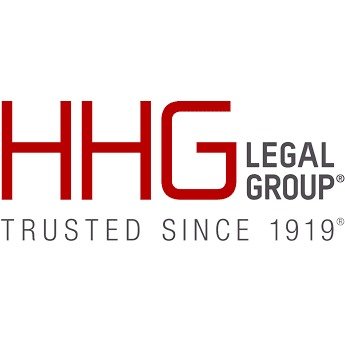Best Licensing Lawyers in Australia
Share your needs with us, get contacted by law firms.
Free. Takes 2 min.
Or refine your search by selecting a city:
List of the best lawyers in Australia
Australia Licensing Legal Articles
Browse our 1 legal article about Licensing in Australia written by expert lawyers.
- How to Start a Business in Australia: A Simple Guide and How a Lawyer Can Help
- Australia is known for its vibrant economy, supportive government policies, and high quality of life, making it an attractive destination for entrepreneurs looking to start a business. Whether you're launching a small local shop or a large-scale enterprise, Australia offers a range of opportunities for growth and success.However, starting a... Read more →
About Licensing Law in Australia
Licensing law in Australia encompasses the rules and regulations governing the granting of licenses and permits across various industries and activities. Licenses can range from business operational licenses, intellectual property licenses, liquor and gaming licenses, to professional practice licenses. The aim of licensing is to regulate activities that may require oversight for public interest, safety, or the management of limited resources. Each state and territory might have specific regulations that complement the federal laws, and it's crucial for businesses and individuals to adhere to these laws to operate legally within Australia.
Why You May Need a Lawyer
Legally navigating licensing requirements can be complex, as they often involve stringent compliance obligations. Here are some situations where legal assistance may be necessary:
- Understanding the specific license requirements for starting a new business.
- Applying for a new license or renewing an existing one, especially in regulated industries like healthcare, law, or construction.
- Facing compliance issues or alleged breaches of licensing conditions.
- Dealing with disputes resulting from licensing agreements.
- Seeking intellectual property licenses to use trademarks, patents, or copyrighted materials.
A lawyer can help interpret complex legal documents, ensure compliance with applicable laws, and represent you in legal proceedings related to licensing disputes.
Local Laws Overview
Licensing laws can vary across different states and territories in Australia. Here are some key aspects to consider:
- Business Licensing: Most businesses need a license to operate, which might include sector-specific licenses like those for real estate agents or travel agencies.
- Intellectual Property: The law governs the use of intellectual property through licensing, ensuring creators maintain control over their works.
- Liquor and Gaming Licenses: Strict laws regulate the distribution and sale of alcohol and gaming services, impacting hospitality businesses.
- Professional Licenses: Certain professions, such as doctors and solicitors, require specific qualifications and licenses to practice legally.
Staying informed and compliant is crucial, as non-compliance can lead to legal penalties, business disruption, or license cancellation.
Frequently Asked Questions
1. What is a business license?
A business license is a permit issued by government agencies that allows individuals or companies to conduct business within the government's geographical jurisdiction. It ensures compliance with local laws and regulations.
2. How do I apply for a license in Australia?
The application process varies by license type and jurisdiction. Generally, you will need to submit an application form along with supporting documents and pay the required fees. Consulting with a legal professional can provide guidance specific to your needs.
3. What happens if I do business without a necessary license?
Operating without a required license can lead to significant fines, legal action, and the potential closure of your business. It can also damage your business reputation.
4. Can I transfer my license to someone else?
License transferability depends on the type of license and the specific terms set out by the issuing authority. Some licenses are non-transferable, while others may require formal approval for transfer.
5. Why is compliance with licensing laws crucial?
Compliance is essential to avoid legal disputes, maintain business integrity, and ensure that your operations meet the regulatory requirements, thereby protecting public interest and safety.
6. What is a licensing agreement?
A licensing agreement is a legal contract between two parties where the licensor permits the licensee to use a brand, product, or patented technology for a specified purpose, often for a fee or royalty.
7. How can I resolve a licensing conflict?
Resolving a licensing conflict often involves negotiation, mediation, or legal arbitration. Seeking legal advice to understand your rights and obligations can be invaluable in reaching a resolution.
8. Are there time limits for license renewals?
Yes, licenses typically come with specific validity periods, after which they must be renewed. Missing renewal deadlines can result in penalties or suspension of the license.
9. What risks are involved in licensing deals?
Risks include potential infringement disputes, inadequate protection for the licensor's rights, and financial risks for both parties if the agreement terms are not carefully managed.
10. Who regulates licensing in Australia?
Licensing is regulated by various statutory bodies, including federal agencies like IP Australia for intellectual property and local councils or state regulatory bodies for business operations and specific industries.
Additional Resources
Here are some resources that can help you navigate licensing laws in Australia:
- IP Australia: For information regarding intellectual property and patents.
- Australian Business Licence and Information Service (ABLIS): To find out about licensing requirements for your business.
- State-based Business Centres: For specific business licensing requirements depending on your state or territory.
- Professional industry associations: Often provide resources and guidance for industry-specific licensing.
- Legal Aid: Can offer initial guidance on your licensing issues.
Next Steps
If you need legal assistance with licensing, consider the following steps:
- Identify the specific licensing issue or requirement you are facing.
- Research and locate a specialized lawyer or legal firm with expertise in licensing law in your state or industry.
- Prepare all relevant documents and details about your case before consulting a lawyer.
- Consult with your chosen legal professional to discuss your situation, explore your options, and develop a plan to proceed.
- Stay informed about changes in licensing laws that might affect your business or personal activities.
Taking a proactive and informed approach can help you effectively manage and resolve any licensing issues you may encounter in Australia.
Lawzana helps you find the best lawyers and law firms in Australia through a curated and pre-screened list of qualified legal professionals. Our platform offers rankings and detailed profiles of attorneys and law firms, allowing you to compare based on practice areas, including Licensing, experience, and client feedback.
Each profile includes a description of the firm's areas of practice, client reviews, team members and partners, year of establishment, spoken languages, office locations, contact information, social media presence, and any published articles or resources. Most firms on our platform speak English and are experienced in both local and international legal matters.
Get a quote from top-rated law firms in Australia — quickly, securely, and without unnecessary hassle.
Disclaimer:
The information provided on this page is for general informational purposes only and does not constitute legal advice. While we strive to ensure the accuracy and relevance of the content, legal information may change over time, and interpretations of the law can vary. You should always consult with a qualified legal professional for advice specific to your situation.
We disclaim all liability for actions taken or not taken based on the content of this page. If you believe any information is incorrect or outdated, please contact us, and we will review and update it where appropriate.
Browse licensing law firms by city in Australia
Refine your search by selecting a city.
















